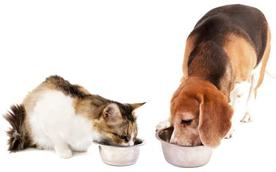1. INTRODUCTION
Life on Earth first appeared approximately 3.8 billion
years ago. The first living things were single cells similar to bacteria. It
was only much later, around 570 million years ago, when more complex organisms
started to appear. Since then, life forms can be found almost everywhere on
Earth, but what about in the rest of the Universe? Do you know if there is life
on other planets?
ACTIVITY:
a)
Do you think these things are living
or non-living? Complete the table.
-
mould - moss - water
-
stone - apple tree - spider
Living things
|
Non-living things
|
b) What differences can you find between the two
columns?
2.
THE CHARACTERISTICS OF LIVING THINGS
A)
VITAL FUNCTIONS
In spite of their differences, all living things
perform three vital functions in order to live and grow: NUTRITION,
REPRODUCTION AND INTERACTION.


a)
NUTRITION
|
|
Living
things need energy in order to
carry out their life functions. Energy comes from nutrients (food). Nutrients help them to grow and function
properly.
|
|
Animals
|
Animals do not make
their own food. Some eat meat (carnivores),
some eat plants (herbivores) and
some eat meat and plants (omnivores).
|
Plants
|
Plants use sunlight,
water, carbon dioxide and minerals to make their own food (photosynthesis).
|


b)
REPRODUCTION
|
|
Living things reproduce. Reproduction means they can make other living things.
|
|
Animals
|
Some animals are born live (viviparous) and others are born from
eggs (oviparous).
|
Plants
|
Most plants reproduce by seeds, spores or a piece of
the same plant.
|
c)
INTERACTION
|
|
Living things interact with the world around them. Moving, touching and
communicating are examples of interaction.
|
|
Animals
|
Animals can move, communicate,
hunt and react to the world around them.
Some animals live in group and
some animals live alone.
|
Plants
|
Plants also react to the
environment. They grow towards the light and their roots grow towards water.
Some plants open and close, and some plants can climb.
|
3. VITAL FUNCTIONS AND BODY SYSTEMS
* Complete this table in class.
System
|
Function
|
Main Organs
|
Vital Function
|
Picture
|
4. THE CELL
All living things are made up of tiny units called cells and perform the three vital functions: nutrition, interaction and reproduction. A cell is the smallest unit of life.
CELL STRUCTURE
Plant and animal cells have the following parts:
Animal cell Plant cell
Multicellular organisms are living things that are composed of two or more cells. For example humans.
In multicellular organisms, cells are grouped to form different levels of organization. The end result is an organism.














No hay comentarios:
Publicar un comentario